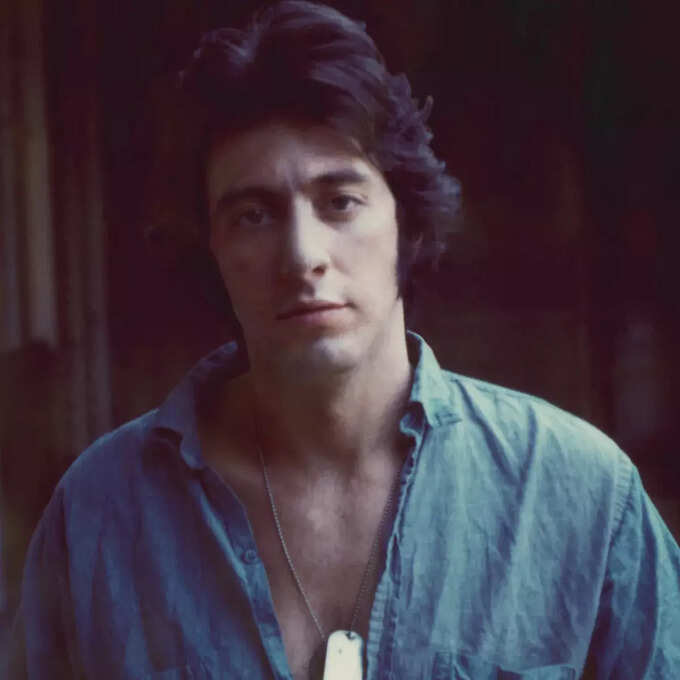Al Pacino, the legendary actor known for iconic roles like Michael Corleone in The Godfather series, has shared in his memoir Sonny Boy how close he came to quitting acting early in his career. Before becoming one of the greatest actors in Hollywood, Pacino faced serious doubts and challenges that almost derailed his career. He recounts an incident during the filming of The Godfather that pushed him to the edge, leaving him uncertain about his future in acting.
Early Career Struggles and a Tough Criticism from Coppola
In Sonny Boy, Pacino recalls an eye-opening moment when The Godfather director, Francis Ford Coppola, expressed dissatisfaction with his performance. Pacino, who was just beginning to establish himself as an actor, was struggling to meet Coppola’s expectations. One day, Coppola called Pacino to a restaurant and bluntly told him that his performance was not up to the mark. The conversation was brief and intense, with Coppola not even offering Pacino a seat—an indication of how serious the situation was.
At that point, Pacino feared he might be fired from the film. Coppola’s frustration was evident, and it left Pacino doubting his abilities. However, everything changed during the filming of a crucial scene. In this pivotal moment, Pacino’s character, Michael Corleone, avenges his father’s attackers by killing a man. This scene turned out to be a game-changer, not only for Pacino’s role in the film but for his entire career.
The Turning Point: A Legendary Scene in The Godfather
The restaurant scene where Michael Corleone executes his enemies is now regarded as one of the most powerful moments in cinema history. It was this performance that convinced Coppola and others that Pacino was the perfect fit for the role. Pacino notes that after filming this scene, the entire atmosphere on set shifted. Coppola’s attitude towards him softened, and the doubt surrounding his casting faded away.

This turning point not only secured Pacino’s role in the film but also set the stage for him to become one of the most celebrated actors in Hollywood. The success of The Godfather established Pacino as a leading man, and he continued to deliver remarkable performances in films like Serpico, Scarface, Dog Day Afternoon, and The Godfather Part II.
Personal Struggles and Childhood Challenges
Despite his eventual success, Pacino’s journey was far from smooth. In his memoir, he opens up about his difficult childhood. His parents divorced when he was just two years old, and he was raised by his mother and grandparents. Growing up in a tough neighborhood, Pacino lost three close friends to drug overdoses. He admits that he could have easily fallen into the same trap if not for the support of his family.
Although Pacino didn’t fall into drug addiction, he did struggle with alcohol early in his career. He reveals that after leaving school at the age of 16, he worked odd jobs while pursuing his passion for acting in theatre. It wasn’t until the 1970s that he achieved significant success, with The Godfather being the catalyst for his rise to stardom.

Financial Troubles and Almost Quitting Acting
Interestingly, Pacino also writes about a period in the 1980s when several of his films flopped, leading to financial difficulties. He admits that he almost walked away from acting during this time. Pacino explains that his finances had deteriorated to the point where he was seriously considering giving up his career. However, his then-partner, actress Diane Keaton, urged him to stay the course, telling him, “You’ve been living the life of the rich for too long—you can’t go back now.”
Thankfully, Pacino took her advice and continued to pursue his acting career, ultimately bouncing back with a string of successful roles.
Limited Focus on Personal Life
While Pacino’s memoir covers many aspects of his acting career and his internal struggles, it offers relatively little insight into his personal life, particularly his romantic relationships. Although he briefly mentions some of the women he has been involved with, he avoids going into too much detail about those relationships. Nevertheless, Sonny Boy provides a fascinating look at the actor’s early career struggles, his rise to fame, and his dedication to his craft.
Pacino’s story serves as a reminder that even the most successful actors face significant challenges and moments of doubt. For fans of Pacino, the memoir offers a rare glimpse into the personal and professional experiences that shaped one of Hollywood’s most iconic stars.
4o


